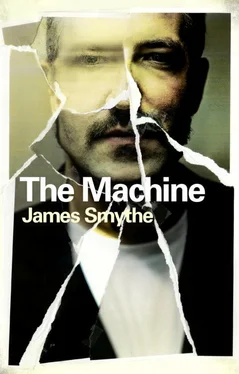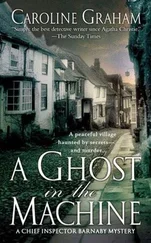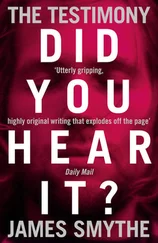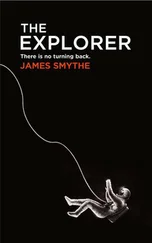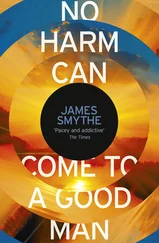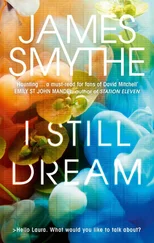Sit still and hear the last of our sea-sorrow! he starts. Who feels separated and alone, like they’re not actually a part of society? he asks, skewing his questions for the teenage audience. Some of their hands slowly creep up. Right, he says, and you should. And that’s because we all do, no matter how old we are, or what we do.
Bloody right we do, Laura says.
It’s a natural feeling, a human feeling. It’s hard, this life thing, the actor says, and we all get through it in any way we can. Caliban – you’ve all read the play, right? Murmurs. Caliban spent his life there on the island, alone and scared. And in many ways, that’s a lot like our lives, isn’t it? We spend this chunk of our life alone – or, just feeling alone – and then this ship comes along and our lives are turned upside down. Canst thou remember a time before we came unto this cell?
I’m going to need that drink tonight, Laura whispers again. Tell me we’re still on.
Beth had almost forgotten. She nods. The kids traipse over the set, which is only really boxes fastened together to represent a shipwreck, and some more of the cast appear, still wiping their lunches from their mouths, and act out a scene for the kids. Afterwards, they’re shepherded through the exhibit on Shakespeare and then back out onto the street, which is cooler and has something resembling a breeze running across it. They gasp for the air.
Stay together, the teachers all say, over and over again, because they know that this is the time the boys are most likely to disappear and try to find shops or trouble. They get to the coaches and file them on alphabetically, class by class, checking them off and making sure that they’re all on board, and when they are the doors are shut. On Beth’s coach, some of them say that they need the loo.
You can hold it, Beth says, until we get to the services. She sits by herself at the front, the kids putting a few rows between her and them so that she can’t hear them talking about their day, or frantically making out on the back rows. She can hear, of course: the slurping, the laughter. They stop at Chichester and let the kids out, and when they’re back on the bus the driver puts the radio on and they sing along to songs that Beth doesn’t even come close to recognizing. At school, their parents are waiting to pick them up; the ones whose parents aren’t there, Beth and Laura offer to wait with (Beth offering first, Laura stubbornly refusing to let her new friend out of her sight). There’s six of them, and after an hour – that the kids spend protesting that there’s no way their parents will turn up, because they never do, and they know it all too well – Beth lets them go.
Go straight home, and have a good summer, she says. When they’re gone, Laura gives an exaggerated sigh.
Thank God, she says. She walks to the gate. Come on.
The pub is heaving with under-age drinkers, many of them sixth-formers from Beth’s classes.
We can go somewhere else, Laura says when she sees them.
It’ll all be like this, Beth says. She walks in and straight past the kids, towards the back of the room where the real locals have gathered. Some of them are smoking: nobody’s telling them to stop. She thinks that she can use the kids’ presence as an excuse to call it an early night. She thinks about what she has to do tomorrow.
Long day, Laura says. What are you drinking?
Whatever you are.
Pinot?
Fine, Beth says. She forms a plan: to drink a few glasses quickly, not too much, but enough for it to become an excuse. She doesn’t know why she doesn’t just say that she wants to go home. Laura isn’t somebody whose feelings she has to worry about hurting. By the time Laura returns with the bottle, Beth’s decided to get this over with. They’re poured and hers is at her lips, cold against them, before Laura has even set the bottle down.
Okay, Laura says. You needed that, apparently.
Apparently so.
They’re not bad kids, you know.
I said that to you, I think.
I think you did.
They absorb the slight unease of not knowing each other, of being colleagues without the subject of work to discuss any more. Laura brings up the job offer, which is now firm and lettered. There’s a contract if she wants it.
Do you want it? Beth asks. She’s halfway through a glass. Another sip. Question, then drink through the answer.
I think so. It’ll be hard with Rob. Really long-distance all of a sudden.
Won’t he move?
We can’t live together until there’s a ring on this finger, and he’s too scared for that. No, that sounds terrible. But really. It would be good though, I think, being here. I don’t know how you live here, but there are worse places to work. She notices how quickly Beth’s drinking, and she tops her glass up when there’s still an inch left. You must have a really nice flat, that’s all I’m saying.
It’s okay.
Any word when… I’m sorry, I’ve totally forgotten his name. Your husband.
Beth doesn’t know if she told her his name in the first place. She’s so worried about somebody snooping, Googling him and seeing what actually happened to him. Still, she thinks: now it’s too late to affect anything. Vic, she says. Victor.
Vic! Gosh. Proper man’s-man of a name, Vic.
He is, Beth says. Goes with the soldier territory.
So when’s he home next?
Beth thinks about lying. But she can’t, because there are tears in her eyes, and hiding them from Laura – sitting this close – would be impossible without making a scene. Tomorrow, she says.
What?
Tomorrow. He’s back tomorrow.
How long for?
For good, Beth says.
She stands in the ladies and wipes her face with dry, flaky tissue paper, and then watches from behind the crowd at the bar, as Laura fills their glasses again – she’s one ahead of Laura, she thinks. She thinks about those holiday friends and wedding-guest confidantes. She thinks about the wine inside her. How she won’t see Laura again, not after today. She’s disposable and transitory, and so is anything that Beth tells her: details forgotten in the blur of the wine and the night and the rush. She orders another bottle at the bar and goes back to the table.
You all right? Laura asks.
Fine, Beth says. She takes her purse from her bag and pulls the photograph from it: Vic in full dress, hat and coat, medals pinned to his lapel. The only part of that life that she kept for herself, even though she was told to destroy it, for both their sakes. Every other photo is generic. No uniform: just a face with no telling details.
Forget who he ever was, they told her. Burn all the photographs, all the evidence. Sell him the story that he’s been told.
This is Vic, she says. She slides it over.
Very army, Laura says. He looks nice.
He’s sick.
Oh? Laura doesn’t realize. She thinks that Beth means the flu, or a stomach bug. Something not worth worrying about.
He’s not in Iran. He’s in a home. A care centre.
What? She looks at Beth as if this lie has been going on for years: burned, rather than just annoyed by somebody else’s secrecy What happened?
Not just now. For years. He’s been in one for years. He came back and he was having dreams, and he became violent. She says it in her flattest tone: able somehow to make it sound like something unimportant, this story that she told so many times when he was first taken away from her. When, almost overnight, the situation became intolerable for her, as everything about him collapsed and devolved.
So he had treatments for it, and…
She doesn’t have to finish the story, because everybody knows how it ends. A tiny percentage that still rolls into the thousands, men and women taken away from their families, set up in places where fixing them isn’t an option – and in return no more than an apology. No compensation, no legal recourse: they signed a document because they were so eager to be fixed in the first place, and they were told the risks. Spelled out to them in numbered bullet points spanning pages and pages, all with their signatures at the foot. So instead they paraded and marched in protest, husbands and wives and children standing next to their loved ones in their wheelchairs. But that got them nowhere, because of those thousands of signatures.
Читать дальше
Конец ознакомительного отрывка
Купить книгу
